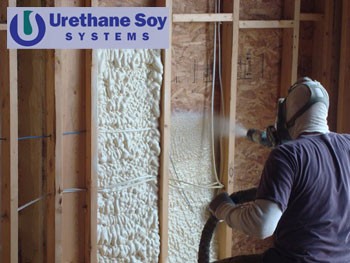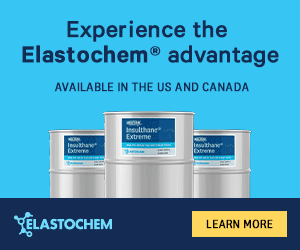Urethane Soy Systems Combines Renewable Content and Urethane Expertise

Volga, South Dakota - November 2, 2009 - Urethane Soy Systems, based in Volga, SD, has a unique perspective on the foam industry. Working with 2,200 soy farmers, the company has the distinctive ability to integrate the input from these farmers with their urethane oriented chemists. This combination of expertise results in innovative products that most other companies are unable to develop.
Mike Fusco of Urethane Soy Systems explains how this ties into their main focus as a company, “Our primary goal is to manufacture soy based polyols. Due to our close relationship with soy farmers and soybean oil specialists, we have been able to develop many new polyol molecules that are ideal for specific foam systems.” In fact, they have received pioneer US patents for the use of a new “bio-renewable” polyol named Soyol®, made from soybean oil, which can replace many petroleum-based polyols in the manufacture of various polyurethane plastic products.
Mike continues, “We take these new polyol molecules, such as Soyol®, and utilize them to create foam systems that have never been seen before in the market. The close relationship between our urethane chemists and soy oil specialists allows us to understand the way these molecules work and the way their characteristics can be utilized for use in particular foam systems.” The understanding of these polyols have resulted in the development of various soy-based systems such as spray foam installation, flexible foam, rigid foam and packaging foam.
This impressive resume of innovations correlates closely with the first line of the company’s mission statement: “To be first in the world in development and delivery of bio-renewable products for the urethane industry.”
Fusco also describes Urethane Soy’s ambitious quality standards, “Every day we are committed to creating new, higher quality polyols. This continual experimentation produces new and superior products on a regular basis.” This motivation is reflected in the next line of their mission statement: “Provide the highest quality of products and services to our customers in an ethical and professional manner.”
Another important focus for the company is its social and environmental impact. This is summed up in the final two lines of their mission statement: “Be a world class organization to our people and communities we serve” and “Maintain the highest degree of environmental excellence in the development of our products.” The company lists a wide range of benefits offered by Soyol® bio-renewable polyols for the environment, the economy and local farmers:
- Soyol® costs less than petroleum-based polyols.
- Soyol® prices are stable; so future cost savings will be even greater.
- Soyol® is a true bio-renewable polyol made from renewable, agricultural resources.
- Soyol® bio-renewable polyols react similarly to petroleum-based polyols in polyurethane formulations, and can produce polyurethane products with equivalent or better physical properties.
- Soyol® bio-renewable polyols have 25% of the impact on the environment in comparison to petroleum based products. This was born out in a recent BEES (Building for Environmental and Economic Sustainability) study performed by Omni Tech International. For every pound of Soyol® over two pounds of CO2 are consumed in the growth phase in the field. Thus, there are distinct advantages for automotive companies to use Soyol® to gain CO2 credits.
Urethane Soy’s website also states that replacing petroleum-based polyols with Soyol® bio-renewable polyols will produce additional benefits such as:
- Utilizing crop/plant based renewable resources will enable farmers to grow more and sell more soybeans and soybean oil, improving economic conditions in rural communities.
- Greater utilization of plant-sourced chemical building blocks will conserve non-renewable fossil fuels.
- Importing less petroleum and exporting more soybean oil will improve the trade balances.
- Crop/plant based resources carry no risk of major environmental damage. Growing more renewable resources will help “green the earth” that consume CO2 and produce oxygen and reduce air pollution.
- Soyol®’s production process consumes far less energy than that needed for petroleum-based polyols. There is no need for oil exploration, drilling rigs, pipelines, oil tankers, refineries, cracking towers, and multi-layered safety systems.
For more information about Urethane Soy Systems or any of their products, visit www.soyol.com.
Disqus website name not provided.



































